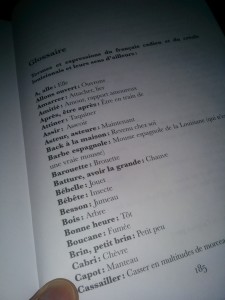Rejoice! Feufollet has finally released a new album after five years and an important lineup change. This first single goes a long way towards summing up the result:
The first thing you might notice, certainly the first thing I noticed, is that the newcomer Kelli Jones-Savoy is singing in English. Jones-Savoy is no newcomer to Cajun music in general, though, having played in T’Monde, a band specializing in traditional Cajun songs, since 2011. She’s more than capable of singing in French and in fact does so on three of the four French language tracks on this eleven track album. Numbers like that are surprising themselves when one considers that the only songs Feufollet has recorded in English since their inception over 10 years ago were three lowly songs on the Color Sessions EP, which themselves were written by the psychedelic rock band Brass Bed, also from Lafayette.
Seeing as my own study of the subject found that French is a highly ranked indicator for Cajun music, meaning this isn’t only a notable development because it’s different for Feufollet, but also because it’s different for this style of music altogether. They certainly aren’t the first Cajun musicians to make this change–Zachary Richard recorded songs in English as far back as 1977 and swamp pop has essentially always been sung in English. Feufollet’s situation is different for several reasons, though.
Zachary Richard, for instance, essentially recorded English language music regularly since his career began, almost as if he was suggesting right away that he didn’t want to be pigeonholed into Cajun music conventions. In fact, his career didn’t even start in Louisiana, nor has he ever seemed to come back for very long. In a way, he successfully distanced himself from the music and culture, to the point where one can expect reasonably expect traditionalists to scoff at the mention of his name. None of this is true for Feufollet, however, who have been firmly planted in Lafayette throughout their career and who spent their first years playing nothing but traditional songs, even including them prominently on their later major releases Cow Island Hop and En Couleurs, so that, even when experimenting, it’s easy to imagine that everything they do is derived from that initial seed of respect.
And while Feufollet are well known for their experimentations, their music almost always includes many of the highest ranked indicators of Cajun music. They wield accordions and fiddles and swing to two-steps and waltzes, as any good Cajun artists would do. These features have been progressively dropped from Zachary Richard’s repertoire to the point where his version of the traditional song Colinda in 1979 was essentially straight reggae. This is also where swamp pop becomes a poor comparison to Feufollet. Swamp pop is nearly indistinguishable from any other R&B to come out of the 1950s, except that it was performed by people from Louisiana who might identify as Cajun.
It’s clear that Feufollet are doing something unique with the release of Two Universes, but discussion of the implications will have to wait until another post.




Recent Comments